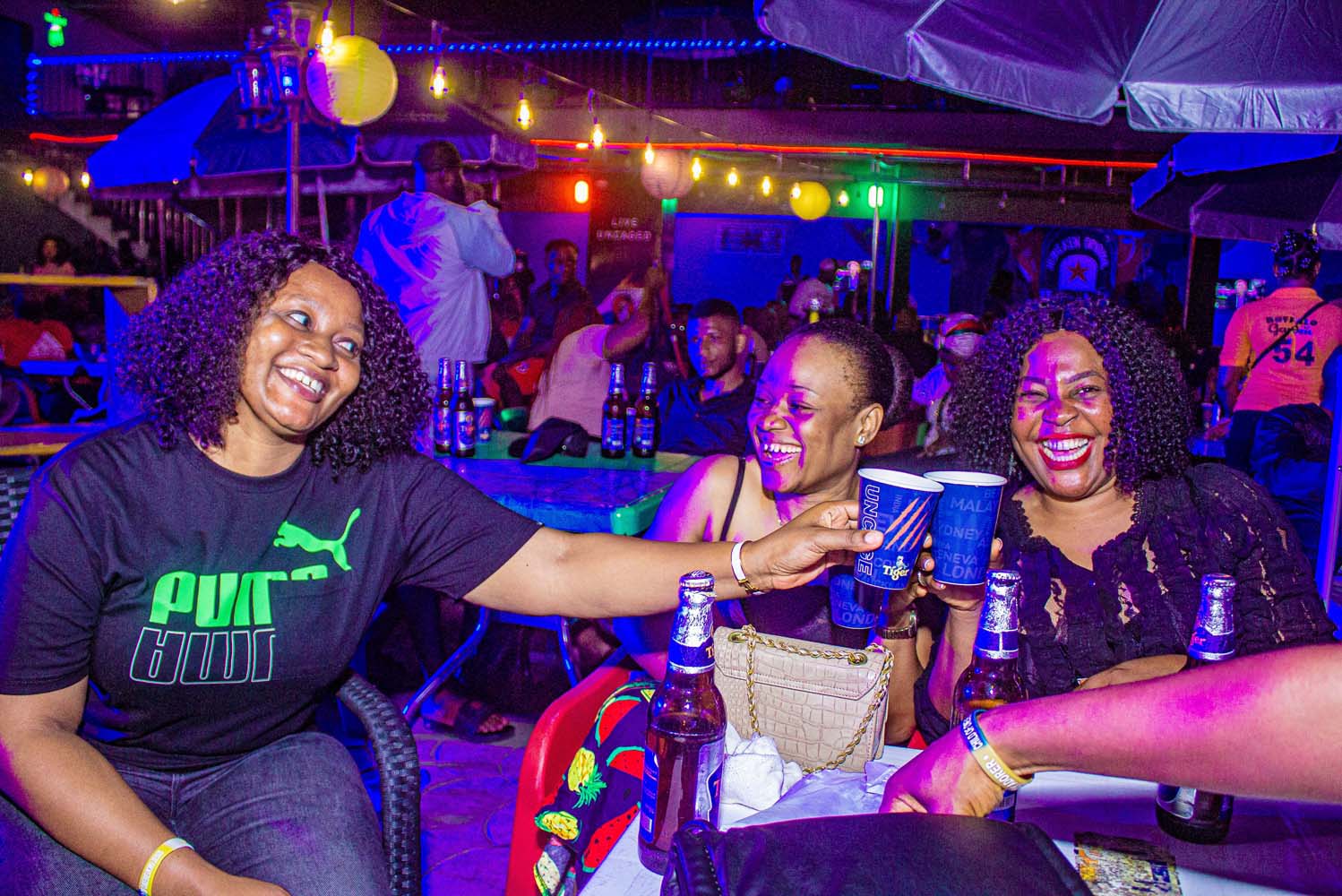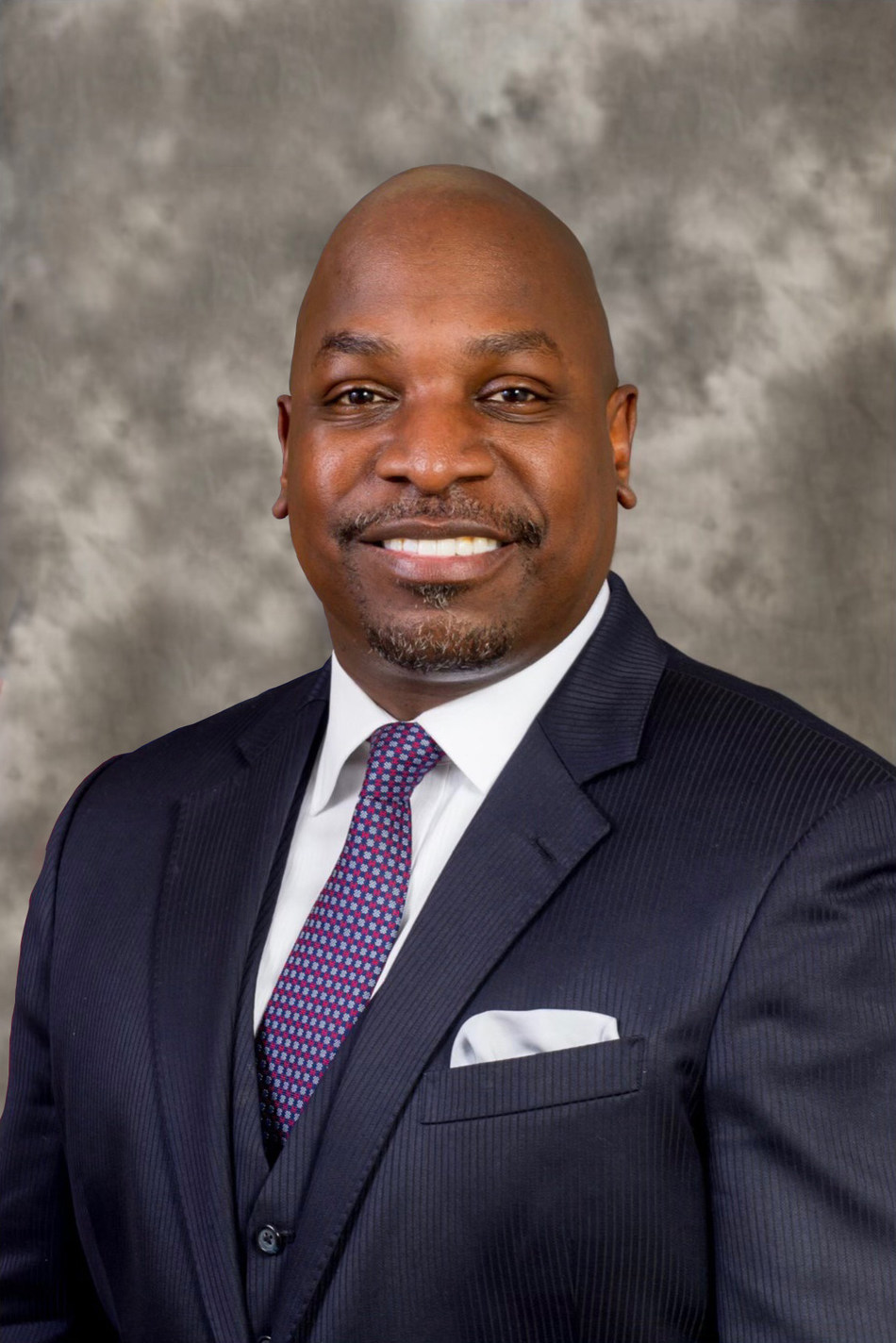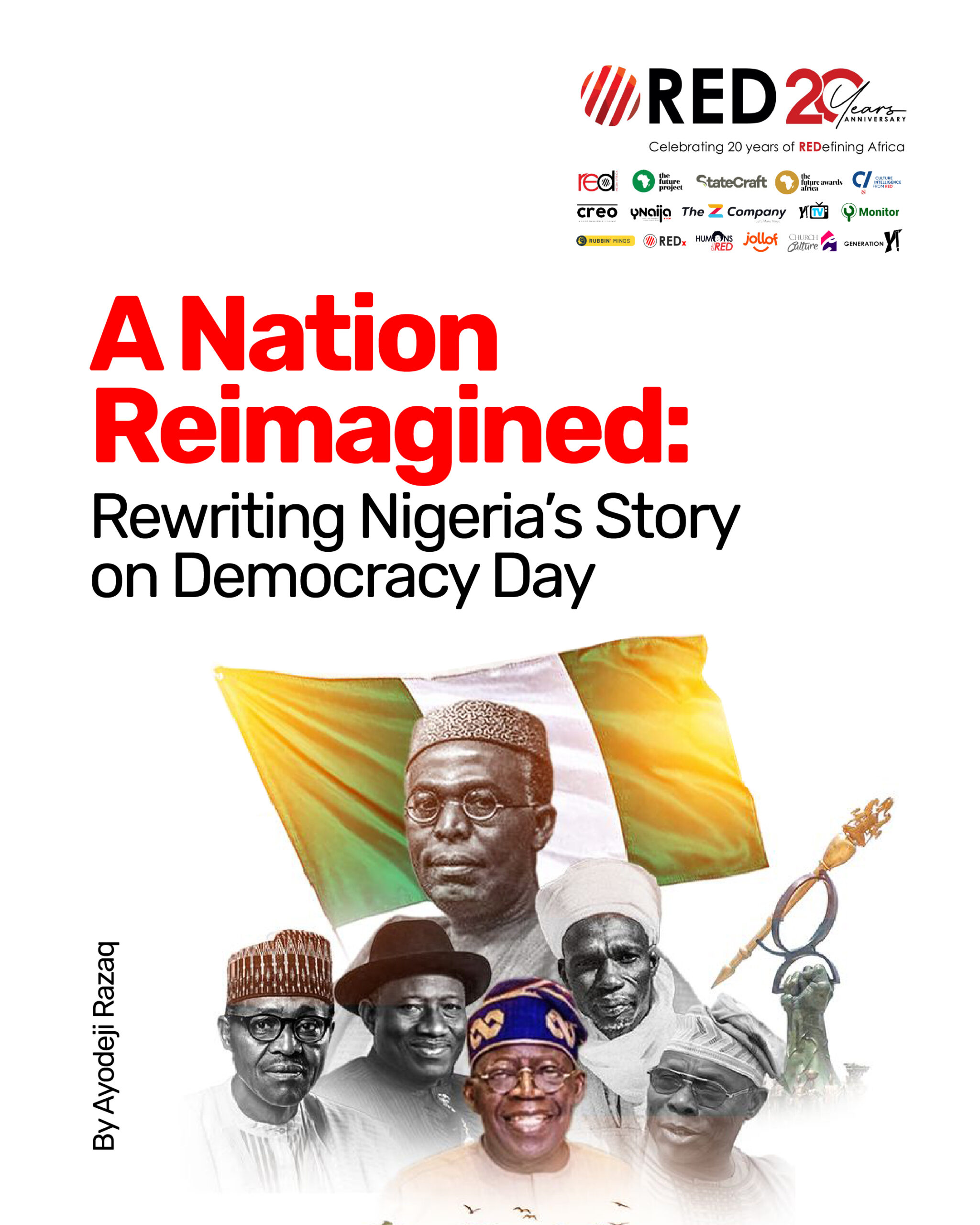As a social media manager, the weekend was the best time to explore the worldwide net and catch up on all the latest trends I had missed and spot the ones that would be emerging.
As I clicked on the crisp photos from the recent Ojude Oba festival, I couldn’t help but notice the bright logos appearing in the background of these beautiful photos.
When did brands begin to infuse themselves in everyday community gatherings rather than hosting lavish events that did nothing but make a little noise?
More importantly, what did experiential marketing look like a decade ago, and what will it look like tomorrow?
I followed the trail of my curiosity, which led me directly to the door of my Oga’s office. Mr Julius Agenmonmen is the founder of Brandlife Limited (Nigeria), Brandlife Kenya Limited and Brandlife Digital; a respected marketing professional and entrepreneur with about 40 years of industry experience across Africa and Europe.
He commended my quest for knowledge and invited me to take a seat.
FirstBank Wins Gold for Best Corporate University in Social & Climate Change Impact
Another milestone achieved: Firstbank disburses N1bn in one day, through agent credit scheme
My first question was simple: What caused the great shift?
At what point could he look back at advertising and immediately sense that the world as he knew it had been completely shifted?
“The most obvious answer would be the rise of digital-first engagement. The shift of consumer attention to more personalised and interactive means of communication had a great influence on how they interact with brands. Just this week, in our most recent activation for Heineken, you can already understand how we utilise digital tools to encourage interactions by infusing a Predict and Win element, where consumers were encouraged to place predictions to stand a chance to win rewards. This certainly wasn’t happening thirty years ago.”
Intrigued by the depth of his insights, I also reached out to Mr. Tade Adekunle, an industry veteran with more than 28 years in brand marketing and communications. He founded Kes Kese, an award-winning marketing agency focused on creating memorable brand activations for clients across West Africa.
With a reflective tone, he recounted how experiential marketing emerged from traditional advertising:
“Back then, advertising relied heavily on direct promotions rather than actual connection. Now, customers get to experience the brand with their five senses. That’s what makes experiential marketing so different—it emphasises an actual connection.”
Tade Adekunle further elaborated by sharing how influencers evolved in experiential marketing. “In the early 2010s, influencers were primarily considered brand ambassadors—high-profile celebrities or popular figures whose primary role was to enhance brand image through association alone. However, with the rise of the everyday influencer, this dynamic shifted significantly. Today, it’s no longer just about association; it’s about genuine, relatable storytelling.”
Back to Julius Agenmonmen, who also delved into a more recent campaign where Brandlife Limited engaged Rema to drive it. This was before he became a worldwide sensation, yet Brandlife Limited could already sense his emerging stardom thanks to his dedicated fanbase.
Mr Julius noted that by leveraging the authentic influence of figures like Rema, consumer sentiment was able to drive brand interactions just as easily as traditional advertising methods.
As our conversation deepened, I brought up a sensitive yet critical topic—the general decline of trust in traditional advertising. Mr Julius, who founded Brandlife Digital precisely due to this shift, shared insightful observations.
“In an era of information overload, consumers have become experts at filtering out noise.”
It’s quite obvious how easily audiences dismiss overly scripted or obviously sales-driven messages. The fragmentation of traditional media certainly didn’t help, making the transition into digital-first marketing much easier.
“There was a time when if you bought a specific time slot at a particular TV or radio station, you were guaranteed to get your message heard. Now, there are so many stations and newspaper outlets available, you are likely only speaking to a portion of your intended audience.
This distrust has pushed marketers to embrace storytelling tactics and authentic experiences to maintain that connection with their audience.”
Shifting focus to the current state of experiential marketing, both Julius Agenmonmen and Tade Adekunle acknowledged critical constraints affecting the industry today.
Our conversation naturally transitioned to the constraints restricting experiential marketing executions. Julius Agenmonmen recalled the Lux Photo Beauty Competition in 1998—a bold campaign that sought to redefine traditional beauty standards by celebrating authentic African beauty. Finalists were invited to a grand event at Eko Hotels, where the late beauty queen, Ibidun Ajayi Ighadalo, first emerged, blossoming fully into herself through the platform.
MTN breaks ground in commercial data hosting with region’s biggest Tier 3 facility
Yet, executing the campaign was no small feat. Interested participants had to submit physical snapshots, and promotional efforts relied entirely on radio jingles, TV spots, and print media. Today, however, there has been a dramatic shift in influencer accessibility. Brands can now collaborate with influencers across various sub-niches, allowing easy connections with precisely targeted audiences through digital platforms.
When asked about budget limitations and how these affect execution, Tade Adekunle was of the view that the goal of experiential marketing should always be bonding beyond performance and cadence.
“Brands must learn to cut their coats according to their size and their objectives. This will always be for your audience to interact with the brand. For example, you cannot be a small business and recruit a big star as an influencer for your campaign. That influencer will surpass your brand image, and it will lead to your brand’s name being associated with the star instead of the other way around!”
Our conversation naturally shifted to present constraints in experiential marketing, starting with culture. Julius Agenmonmen highlighted a key issue:
“You cannot transport an activation in Lagos simply because it worked here, only to do the exact same thing in Kano. Nigeria’s diverse cultures demand nuanced understanding.” And we take this into consideration when executing for our clients in East Africa.
Tade Adekunle shared similar thoughts: “Once you’re sure that you’re speaking to the right audience, infuse culture. That cultural resonance makes your experiential activations impactful.”
Another pressing matter was government bureaucracy.
Julius Agenmonmen elaborated: “This bureaucracy exists at so many levels—from various government layers to non-state actors. Some activations require significant security spending simply because they’re not safe otherwise.”
The conversation about governmental involvement naturally steered us towards discussing the Advertising Regulatory Council of Nigeria (aka ARCON).
Julius Agenmonmen began by expressing clear support for ARCON, remarking that while ARCON’s approval process might seem rigorous, it’s about time we had such oversight. He expanded further on the body’s role by emphasising that ARCON plays a crucial role in the industry as it provides ethical advertising, which in turn helps industry growth by ensuring standards.
“They also help protect consumers as brands must justify their claims before ARCON approves their ads. Additionally, they also encourage the use of local content. Why should you have a biracial model when there are numerous Nigerian beauties? Why should an AD shoot be done in South Africa? This is one of the many questions ARCON poses that keeps brands in check.”
Yet, there remains room for improvement. Julius Agenmonmen’s recommendation was clear: “Long approval processes can be fixed easily thanks to the currency of digitalisation. They must embrace digital transformation. Until then, agencies must plan for ARCON by including their approval times in their project timelines.”
Finally, our discussion naturally steered towards the future of experiential marketing. Julius Agenmonmen identified AI as the new frontier.
“Trends are always happening. Now the shift will utilise AI, using hyper-personalisation tools with augmented reality and AI emotional intelligence, where the system builds smarter feeds using facial cues, etc.”
He emphasised a forward-thinking strategy, advising marketers to remain adaptable: “Marketers of tomorrow must think beyond execution. What happens after? The line between the offline and online worlds is collapsing quickly. How are you preparing for that?”
The conversation ended with a powerful question from Julius Agenmonmen to marketers and agencies of tomorrow.
“Can your executions go beyond moments and build into a movement? Do this, and you will find that you’re redefining how brands and consumers connect for decades to come.”
It became abundantly clear from our insightful discussions that experiential marketing’s evolution over the past decade has been profound, shifting from mere promotional tactics to personalised experiences powered by digital innovation.
As I stepped out of Julius Agenmonmen’s office, inspired and reflective, one thought lingered vividly: experiential marketing has indeed moved far beyond just creating experiences—it’s now about fostering meaningful, lasting connections that transcend beyond memorable moments and forge powerful movements.
With this, I leave you with the question: Are you crafting singular moments or immersive experiences?
The choice is up to you.
About us:
Brandlife is a leading marketing agency specialising in experiential and digital solutions across Africa. We create powerful brand experiences, impactful activations, and digital campaigns tailored to resonate deeply with audiences. With headquarters in Lagos, Nigeria, Brandlife Limited and a dedicated regional office in Nairobi, Kenya, Brandlife Kenya Limited, we blend cultural insight, creativity, and digital innovation to drive authentic engagement. From live events, retail activations, influencer partnerships, to strategic social media and digital storytelling, Brandlife ensures meaningful connections between brands and consumers.
Want to ask us a question?
Contact us via email [email protected] or visit our website.






Comment
No comments found.